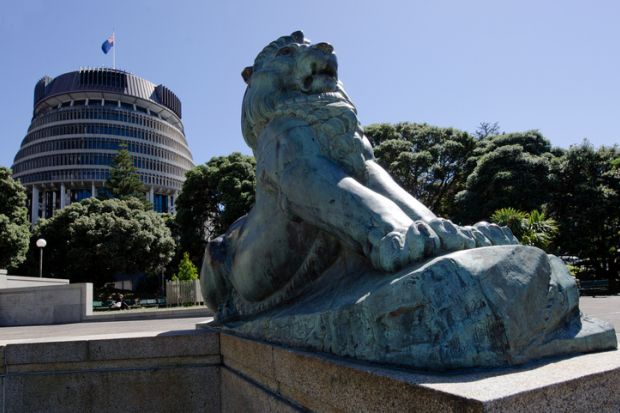New Zealand universities will lose government funding unless they publicly embrace free speech, under plans negotiated by constituent parties of the incoming government.
A coalition agreement between the National Party and its junior partner, the Association of Consumers and Taxpayers (Act) Party, outlines an intention to amend the Education and Training Act “such that tertiary education providers receiving taxpayer funding must commit to a free speech policy”.
The agreement also contains a commitment to change the “fees-free” policy so that tuition charges are waived for the final, rather than the first, year of tertiary studies.
An agreement National has reached with its other coalition partner, New Zealand First, likewise commits to altering the fees-free arrangement after 2024. The new government will “protect freedom of speech” by ruling out hate speech legislation, it adds.
The Free Speech Union labelled the proposed scuttling of the “unavoidably subjective” hate speech laws and the imposition of a free speech policy as “huge wins”.
“One of the sectors where censorship is most blatant and speech least free is universities,” said chief executive Jonathan Ayling. “If academics and their students are not free to consider unconventional ideas and dissent from the status quo, we’ll never move forward.
“Tertiary education has become an environment where self-censorship is the norm, not the exception, and we all suffer as a result.”
The Tertiary Education Union said the policy was unnecessary. “Our legislation protects academic freedom,” tweeted national secretary Sandra Grey. “Could we just focus on that being protected so it can be used!”
Opinion also varied over the fees-free change. While back-ending it could incentivise students to finish their courses, a critic tweeted that the proposed approach was “just gatekeeping people out of tertiary so the already well off continue to get ahead and everyone else has less opportunity to advance themselves”.
National’s agreement with New Zealand First also commits to winding back references to the Treaty of Waitangi and resisting policies that “seek to ascribe different rights and responsibilities to New Zealanders on the basis of their race or ancestry”.
Register to continue
Why register?
- Registration is free and only takes a moment
- Once registered, you can read 3 articles a month
- Sign up for our newsletter
Subscribe
Or subscribe for unlimited access to:
- Unlimited access to news, views, insights & reviews
- Digital editions
- Digital access to THE’s university and college rankings analysis
Already registered or a current subscriber? Login








